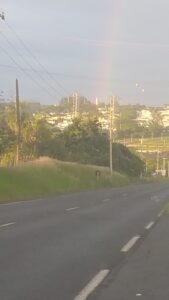
Posts Tagged ‘Being’
No time to Being
Neither the pandemic, nor the Home Office, nor the intriguing series (personally I still prefer to go out and go to the movies) have made men calmer, more serene and happy, everything needs to be accelerated.
(personally I still prefer to go out and go to the movies) have made men calmer, more serene and happy, everything needs to be accelerated.
The “Aroma of Time: a philosophical essay on the Art of Delay” (2016) is nothing more than a counterpoint to this destructive stigma of our time that culminates in desires to exclude the Other, hatred and violence without borders, in short, an ever-increasing war. cruelest on a dark horizon, there is no time to be, just to have, to satisfy the simplest entertainment, not just games. The essay originally published in Germany in 2007, Byung-Chul updates what is not only an acceleration of time but also a temporal crisis based on a desynchrony not only of reality in a nobler and more poetic sense, whose discontinuity leads to something without direction, order and impossibility of a synthesis or conclusion that allows our lives to last in an “aroma”, as its “delay” should be understood.
He quotes and analyzes “Marcel Proust “In search of lost time” (Proust, 1913) what he calls a “temporal crystal” or his vision of aromatic time: “silent, sonorous, fragrant and clear hours” (in Han, 2016, p. 59 ).
There is a time of temporal anguish, it seems that the time spent slips through the fingers and is lost.
What is substantial and essential in our lives, essence and substance are the main forms of desynchrony in our being, they are referred either to an angelic delirium (false essence) or to a sculptural, decorative and unreal physical form (false substance).
As Byung-Chul deduces: “it presupposes that existence is historical, that each of us has a trajectory. The aroma is that of immanence” (Han, 2016, p. 59).
In philosophy and practice immanence is something that has an end in itself, as opposed to transcendence that something or an end outside and superior to itself.
Such is our lost “aroma” of time, to contemplate experiencing Being-in-time as having an end beyond, as Byung-Chul ends and concludes in his essay the necessary correction: “a large measure of strengthening the contemplative element” (Han, 2016, p. 186).
Han, Byung-Chul (2016). O aroma do tempo: um ensaio filosófico sobre a Arte da Demora. transl. Miguel Serras Pereira, Lisbon: Relógio d´Água.

